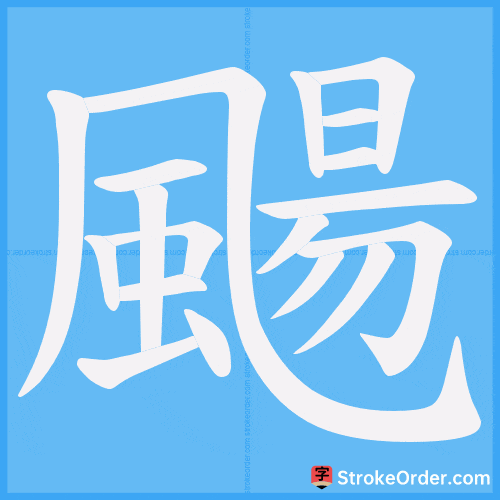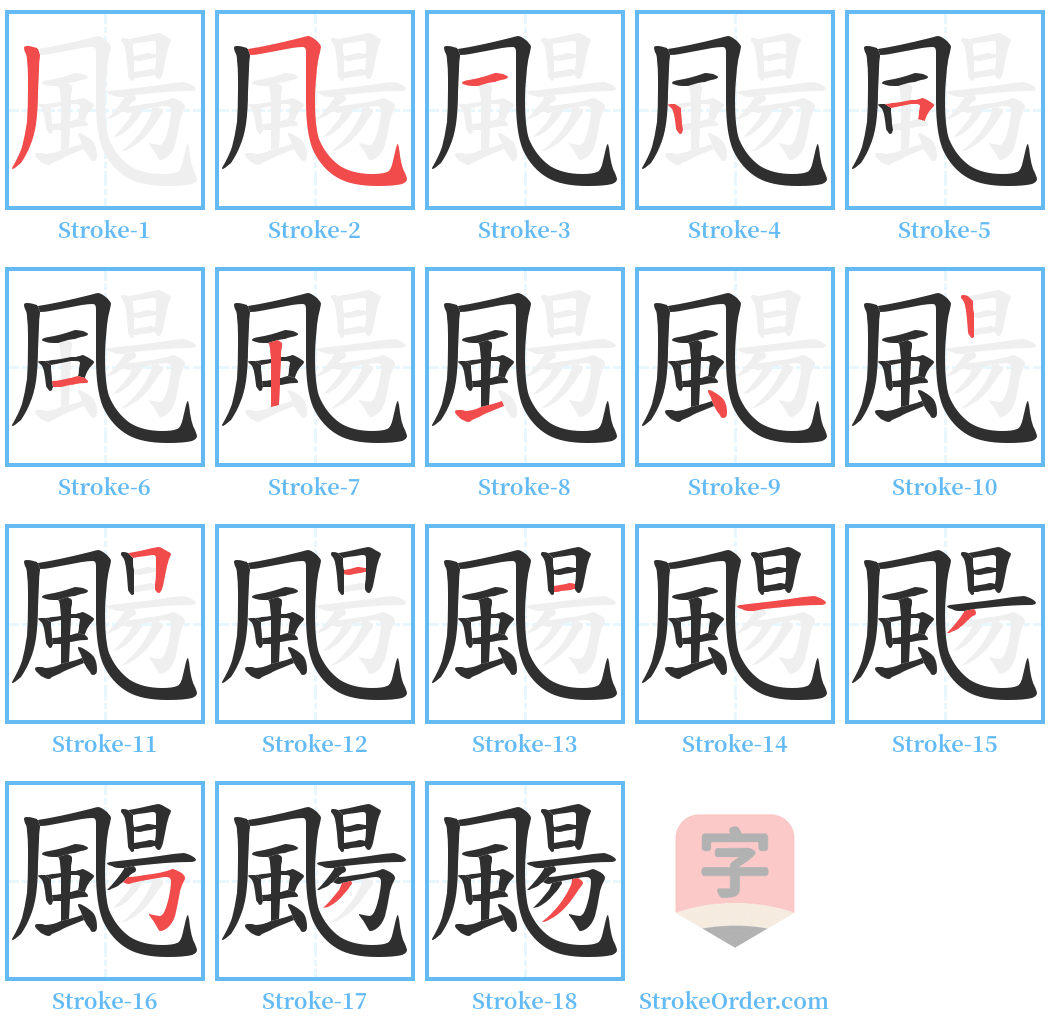颺 Stroke Order
Animated Stroke Order of 颺

Stroke Order Diagrams for 颺

Information of 颺
Pinyin
yáng
Radical
風
Strokes
18 strokes
Usage
★★
Definition
颺
yáng
【动】
1. 飛揚;飄揚。
Fly; float; flutter.
2. 通“揚”。揚舉。
Related to "扬". To lift.
3. 通“揚”。顯揚。
Related to "扬". To show off.
4. 通“揚”。揚聲,大聲。
Related to "扬". Loud.
1. 飛揚;飄揚。《説文•風部》:“颺,風所飛揚也。”
Fly; float; flutter. "Yáng means flown by the wind."
2. 飛。亦指遁走。《後漢書•吕布傳》:“譬如養鷹,飢即為用,飽則颺去。”
To fly; it also refers to fleeing. "Like raising a hawk, when hungry it is used, when full it flies away."
3. 船緩緩行使。《正字通•風部》:“颺,舟徐行貌。”
The ship moves slowly. "Yáng refers to the slow movement of a boat."
4. 水波蕩漾。戰國宋玉《釣賦》:“退而牽行,下觸清泥,上則波颺。”
Water waves undulate. "Retreating while pulling, touching the clear mud below, and above there are waves."
5. 指聲音高揚。《文心雕龍•聲律》:“沈則響發而斷,飛則聲颺不還。”
Refers to a high pitch of sound. "When suppressed, the sound breaks, when flying, the sound rises without returning."
6. 顯揚;發揚。《書•益稷》:“工以納言,時而颺之。”
To display; to promote. "The craftsmen accept wisdom and frequently show it."
7. 顯明,出眾。《左傳•昭公二十八年》:“今子少不颺,子若無言,吾幾失子矣。”
To be prominent; outstanding. "Now you are not prominent; if you don't speak, I will almost lose you."
8. 頌揚;稱頌。宋羅泌《路史後紀•疏仡紀》:“作《大化》、《大訓》、《六府》、《九原》之章,以颺禹功。”
To praise; to commend. "I composed sections to praise Yu's achievement."
9. 清風。唐慧琳《一切經音義》卷七十三:“颺,《考聲》云:‘清風也。’”
A gentle breeze. "Yáng, as the phonetic study states: 'It is a gentle breeze.'”
10. 舉,揚起。《漢書•揚雄傳上》:“知衆嫭之嫉妒兮,何必颺緊之蛾眉?”
To hold up; to raise. "Knowing the jealousy of many, why must one hold tight to things?"
11. 簸揚,去穀物糠枇。《正字通•風部》:“颺,簸颺,颺去康枇也。通作揚。《詩•小雅》作簸揚。”
To sift and separate; to remove chaff from grain. "Yáng refers to the act of sifting. It's synonymous with ‘扬’."
12. 拋;丟。张相《詩詞曲語辭匯釋》卷五:“颺,猶抛也;丢也。”
To throw; to discard. "Yáng is akin to ‘throwing’ or ‘discarding’."